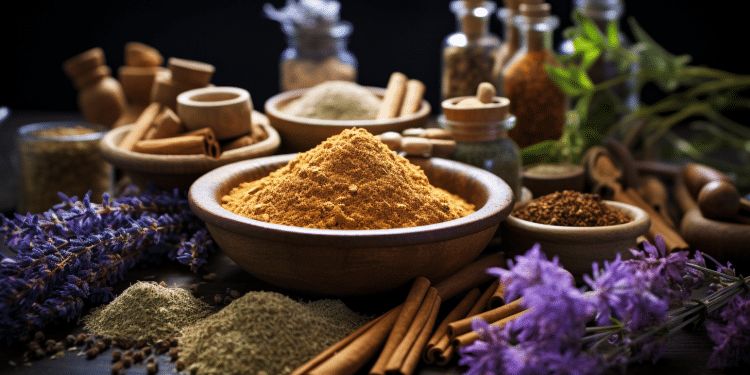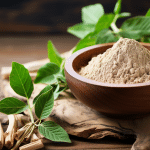Adaptogens are the active ingredients in some plants and mushrooms, which can affect the way your body deals with stress, anxiety, and fatigue. Plants and mushrooms offer the potential for adaptogenic effects. When consumed, these plants target certain stressors in the body. It is not toxic if taken at a regular dosage.
It helps your body to deal with stress. It allows your body to get back into a state of balance (homeostasis). Adaptogens act as a temporary bandage, but they are not the answer for chronic stress.
What do adaptogens do to the body?
The purpose of taking adaptogens is to bring the body back into balance also known as homeostasis. The plant-based actions of adaptogens enhance or reduce the chemical reactions within your body. For instance, if you are stressed or your cortisol levels are high, adaptogens respond by decreasing cortisol levels. If you are experiencing chronic fatigue, where your cortisol levels are low, adaptogens will raise the level of cortisol in your body.
While certain adaptogens, such as ashwagandha and Asian ginseng, have numerous studies about their various actions, supplements are not regulated by the FDA, and an FDA endorsement does not equal safety.
If you are planning on adding plants with adaptogenic qualities to your diet, speak to your healthcare practitioner to discuss how they may affect your health and whether they are a good fit.
What Are The Most Popular Adaptogens
There are many different types of adaptogens.
American Ginseng (Panax quinquefolium): American Ginseng offers immune system support (immune modulator) which helps to decrease inflammation in order to alleviate pain (anti-inflammatory). Additionally, this type of ginseng fights stress and enhances the nervous system, improving the way the body reacts to stimuli (fight-or-flight). Some studies show that American ginseng resets your dopamine levels and regulates your mood.
Ashwagandha (Withania somnifera): Ashwagandha has positive effects on your endocrine, nervous, immune, and cardiovascular systems, by regulating metabolism, and helping you relax by soothing the way your brain reacts to stress. Ashwagandha offers protection for your cells as an antioxidant and it decreases swelling (anti-inflammatory response).
Asian Ginseng (Panax Ginseng): This type of ginseng helps to alleviate mental as well as physical fatigue. Ginseng may boost your energy and productivity when you are performing stressful activities.
Eleuthero (Eleutherococcus senticosus): Similar to ginseng, eleuthero can reduce stress and fatigue. This adaptogen helps to enhance immune function as an immune modulator.
Rhodiola (Rhodiola Rosea): Rhodiola relieves symptoms of fatigue, anxiety, and depression. Studies have shown that Rhodiola helps to enhance productivity in high-stress situations, such as work or during physical exertion.
How to take adaptogens
Add adaptogens to your meals or drinks using tinctures, a liquid form of a plant extract.
Can You Drink Adaptogens in Tea?
Drinking a cup of tea is a wonderful way to take a break from your day, reducing your stress with every warm, calming sip.
Some adaptogenic plants can be dried, ground, and steeped in hot water just like steeping a favorite tea. There are a few different types of tea blends available that utilize certain adaptogens as a major component. Be sure to read the labels to find out what the intended effects of the tea are, how long to steep the tea in water, and how frequently you should consume it.
Should you be taking adaptogens?
Adaptogens support how well your body handles stress. Reduces tiredness and/or increases your energy. Regulate emotional responses to stress.
Adaptogen dosing differs depending on the plant and the way that you decide to consume it. For instance, ashwagandha dosage in capsules is between one to six grams of dried root a day, or in tincture doses depending on the concentration, which vary from brand to brand. Capsules can also be made from the plants extract, with the dosage of the standardized extract being 500 milligrams twice daily. Before starting to take adaptogen supplements, read labels on how much you need to take and how often, and talk with your health care practitioner to see if he or she has recommendations for what adaptogens are right for you.
Studies have shown adaptogens work best over short periods of time (less than six months) as your body may develop resistance to adaptogens and their intended effects, making them less effective over time.
What are the side effects of adaptogens?
Adaptogens are usually quite tolerable. Side effects are rare, but they are possible, and they vary depending on the plant. It is also important to understand what purpose of adaptogens that you are taking and how they are going to impact your body. For instance, some adaptogens boost energy, and you wouldnat want to take this kind of adaptogen just before going to sleep, because you would have trouble falling asleep.
Adaptogens can affect the way some medications work if you have health conditions such as high blood pressure, diabetes, insomnia, hypothyroidism, and depression. What do I need to tell my health care provider before starting adaptogens? If you are planning to get pregnant. The types of adaptogens that you are interested in taking.
No one wants to feel stressed out when unexpected changes happen in their lives. Adaptogens are the facilitators to help your body minimize stress responses and bounce back after whatever is throwing you off-balance. Check with your health care professional before taking adaptogens to ensure that they do not interfere with any conditions that you have or medications you are taking, so your body can achieve a state of peace and balance.










